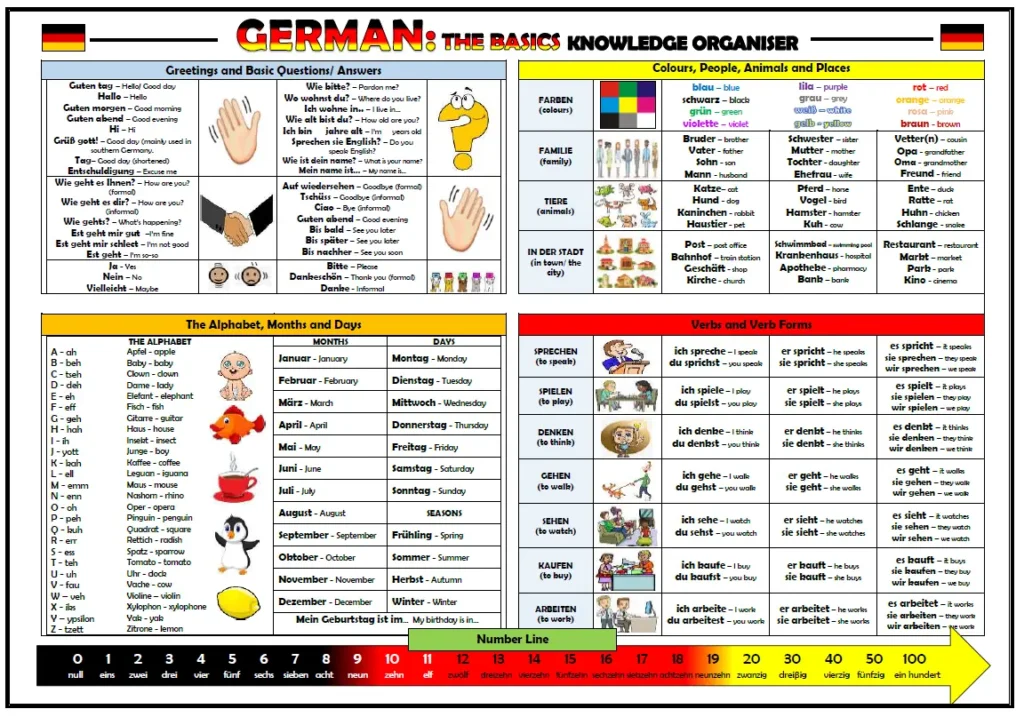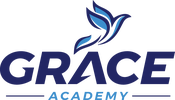Table of Contents
ToggleHow to Learn German Language Easily: A Step-by-Step Guide
Learning a new language can be an exciting and rewarding journey, and mastering the German language is no exception. Whether you’re interested in expanding your cultural horizons, enhancing your career prospects, or simply challenging yourself, this step-by-step guide will provide you with the tools and strategies to learn German Language easily and effectively
Step 1- Determine Your Overarching Goal
Setting defined goals is vital before embarking on your language learning journey. Define your primary aim for learning German, whether it is to acquire basic conversational skills, to become fluent, or to pass a language competency test.
Breaking your objectives down into achievable chunks and setting aside dedicated study time can help you remain focused and motivated throughout the learning process.
Step 2 Learning the Fundamentals
When learning any language, it is critical to have a firm foundation. Begin by being acquainted with the German alphabet, pronunciation, and key phrases and greetings. Because the German language has its own distinct sounds and intonations, practicing appropriate pronunciation from the start will put you on the right track to productive communication.
The German Alphabet
The German alphabet consists of 26 letters, just like the English alphabet. However, there are a few additional letters and special characters that are unique to the German language. Familiarizing yourself with the German alphabet is a crucial step in learning how to read and write in German.
The German alphabet includes the following letters:
A, B, C, D, E, F, G, H, I, J, K, L, M, N, O, P, Q, R, S, T, U, V, W, X, Y, Z
In addition to these letters, German also uses umlauts (ä, ö, ü) and the letter “ß” called Eszett or “sharp S.” Umlauts are diacritical marks that change the pronunciation of a vowel, and “ß” is used in place of “ss” in some words. It’s important to recognize and properly pronounce these special characters when reading or writing in German.
Essential Phrases and Greetings
Learning essential phrases and greetings in German is essential for everyday conversations and interactions. Here are some common phrases and greetings to get you started:
Hallo! – Hello!
Guten Morgen! – Good morning!
Guten Tag! – Good day!
Guten Abend! – Good evening!
Wie geht es Ihnen? – How are you? (formal)
Wie geht’s? – How are you? (informal)
Danke! – Thank you!
Bitte – Please/You’re welcome
Auf Wiedersehen! – Goodbye!
Tschüss! – Bye!
Ich heiße… – My name is…
Woher kommst du? – Where are you from?
Entschuldigung – Excuse me/I’m sorry
Ja – Yes
Nein – No
Prost! – Cheers!
Alles Gute! – All the best!
Learning and using these phrases will help you in various social situations, such as greetings, introducing yourself, expressing gratitude, and saying goodbye. Practice these phrases regularly to improve your pronunciation and fluency in German conversations.

Introducing Yourself:
Learn how to introduce yourself in German, including stating your name, nationality, and basic personal information. Practice common phrases for greetings, expressing gratitude, and engaging in simple conversations.
Immersing yourself in the language by using these phrases in everyday situations will help you gain confidence and improve your speaking skills.
Step 3 - Vocabulary and Grammar Development
Developing a large vocabulary and mastering grammar are critical components of learning any language, including German. You will learn the ability to express yourself clearly and effectively by growing your vocabulary and understanding grammatical principles.
Important Nouns, Verbs, and Adjectives
Focus on important nouns, verbs, and adjectives in German to expand your vocabulary. Begin with commonplace items and activities and progressively increase the complexity of the words you learn. To practice and reinforce your comprehension of these terms, utilize flashcards, vocabulary lists, and internet resources. Pay close attention to noun gender and plural forms, verb conjugations, and adjective ends to guarantee accurate sentence use.
Step 4 - Extending Your Knowledge
Once you’ve mastered vocabulary and grammar, it’s time to work on your listening, speaking, reading, and writing abilities.
Listening Comprehension
Expose yourself to real German audio resources, including as podcasts, music, movies, and TV programs, to increase your listening comprehension. Begin with easier materials and work your way up to more difficult ones. Pay attention to the important concepts, essential terminology, and sentence forms. Take notes, summarize what you’ve heard, and engage in listening activities to practice active listening.
Conversation and Speaking Practice
Regular practice and connection with others are required to improve your speaking abilities. Find language exchange partners or discussion groups where you may participate in German talks. Concentrate on your fluency, pronunciation, and accuracy. Make errors; learning from them is a necessary part of the process. Practice speaking in a variety of situations, such as ordering meals at a restaurant, asking for directions, or making small chat.
Reading and Writing Ability
Reading German literature such as books, newspapers, and internet articles can help you improve your reading abilities. Begin with basic texts and work your way up to more difficult ones. Consider vocabulary, grammatical structures, and context. Writing in German is a wonderful approach to enhance your grammar and vocabulary knowledge. Begin with easy writing projects like describing everyday activities or composing short paragraphs, then progress to more sophisticated writing assignments.
Step 5 - Creating an Immersive Environment
It is critical to create an immersive setting for your language learning experience. Consume German material, such as books, movies, TV series, and music. Change your devices’ language settings to German. Using German words, label items in your area. Explore German traditions, festivals, and rituals to immerse yourself in the culture and language. Participate in activities that enable you to put your German abilities to use in real-life circumstances
Step 6 - Maintain Motivation and Regular Practice
Staying motivated and sticking to a regular practice schedule are essential for language learning success. Set attainable objectives and keep track of your progress. Celebrate your accomplishments along the road. Make your practice fun by viewing German movies, listening to German music, or playing language learning games. To encourage regular practice, create a daily or weekly study regimen. Surround yourself with a language learning group that will encourage and hold you accountable.
Step 7 - Seek Professional Help If Necessary
Consider obtaining help from German language experts in Aluva if you feel the need for more direction or support. Enroll in a renowned German language tutoring facility in Kochi that provides organized study and customized instruction. Experienced teachers may give useful insights, proper pronunciation, and personalized guidance to assist you in your language learning journey. Their knowledge and coaching may help you improve your abilities and build your confidence in using German successfully.
Remember that persistence, perseverance, and a good attitude are all necessary for learning German. Accept the learning process, appreciate your accomplishments, and enjoy the trip as you improve your language skills. Best wishes from Grace Academy !

